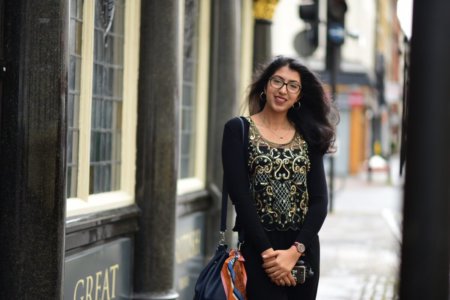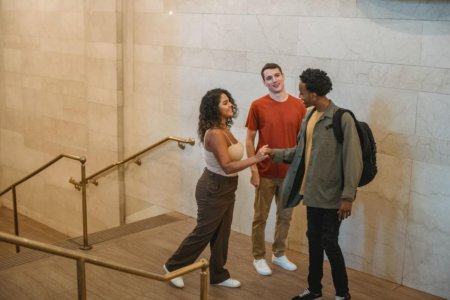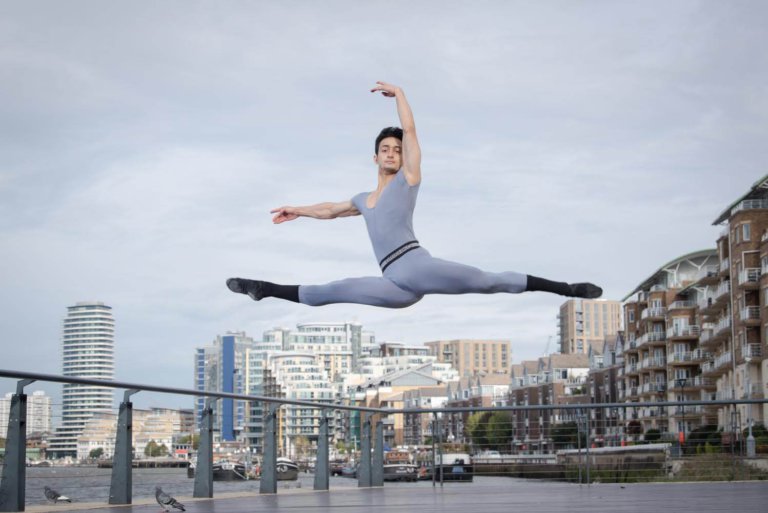
At 17, Kamal Singh is, by many accounts, a late starter in ballet, even though he has been compared to Rudolf Nureyev, a hypnotic legend who began training only at 11. No matter — the New Delhi native, 21 today, is now a student at the prestigious English National Ballet School in London, a specialist training centre with a track record of transforming young talent into world-class performers over a three-year programme.
It’s a triumphant turn of events for the son of a rickshaw driver from Vikaspuri, Delhi who couldn’t even afford the 3,500 rupees (37 pounds) fees per month at the Imperial Fernando Ballet School in his home city despite his father working two jobs and all hours.
As recent as 2016, Singh was not even aware of what ballet even was. He just knew he was transfixed by the dancers in Bollywood films and he decided to try it for himself. Fast forward to 2020, Singh is making a history of firsts: first in his family to study abroad and one of the first Indian students to be admitted to the English National Ballet School.
Star power and the social network of some of Bollywood’s biggest names will pay for the total funds needed to study here — tuition and living expenses in one of the most expensive cities in the world, amounting to 20,000 pounds. The crowdfunding campaign, co-founded by actor Kunal Kapoor, raised all the funds in less than two weeks and got stars such as Hrithik Roshan to pledge 3,200 pounds to it.
A disadvantaged background should never be an obstacle for talents, especially of Singh’s calibre, to flourish. With a golden ticket in hand to pursue his dream, he is next in line to right many wrongs: to rewrite the stigma against artistic pursuits, to bring more diverse faces to an overwhelmingly white industry and to be the graceful figure to challenge archaic gender stereotypes. We caught up with Singh to learn more about his extraordinary journey:
Where does your passion for ballet stem from?
My love of dance probably stems from music — I have very broad taste in it — and physical activity. When I dance, I am completely released from the preoccupations and stresses of my day-to-day life — it’s an escape. Ballet allows me the freedom to express myself, and dance is an art form that has been used for self-expression for thousands of years and hasn’t changed to this day.

At 17, Kamal Singh is, by many accounts, a late starter in ballet. Source: Arnaud Stephenson
Walk us through the application process for the English National Ballet School.
There are specific seasons to apply for ballet auditions in the world. During the COVID-19 lockdown, I was feeling depressed because I was 20 years old — which is basically the last year to audition for ballet schools. I sent applications to different schools and companies, but they were all postponed due to the pandemic.
Then on Instagram, I saw my Maestro Fernando Aguilera — the director of IFBC in India — post on Instagram looking for ballet dancers for a new professional trainee programme for a year. My teachers helped me apply, and I then received an email from English National Ballet School stating I was selected by the artistic director — Viviana Durante — because they were looking for talented dancers like me. I couldn’t believe it. It was a miracle I was chosen.
Kamal Singh is a 20-year old ballet dancer from Vikaspuri, Delhi who discovered ballet just 4 years back. He comes from a very humble background, his father is an e-rickshaw driver and he attended the local government boys school.. contd pic.twitter.com/L4tTAQB2CY
— Kunal Kapoor (@kapoorkkunal) September 16, 2020
Through my crowdfunding campaign, KETTO, I managed to raise my school and visa application fees. I am so thankful to people from all over the world who contributed to this fund — I wouldn’t be here without this help.
What are some of your favourite spots in London?
Piccadilly Circus, Trafalgar Square, Buckingham Palace and Covent Garden. I always visit these places when I have free time from school.
Do you think it would have made a difference if you continued your studies in India?
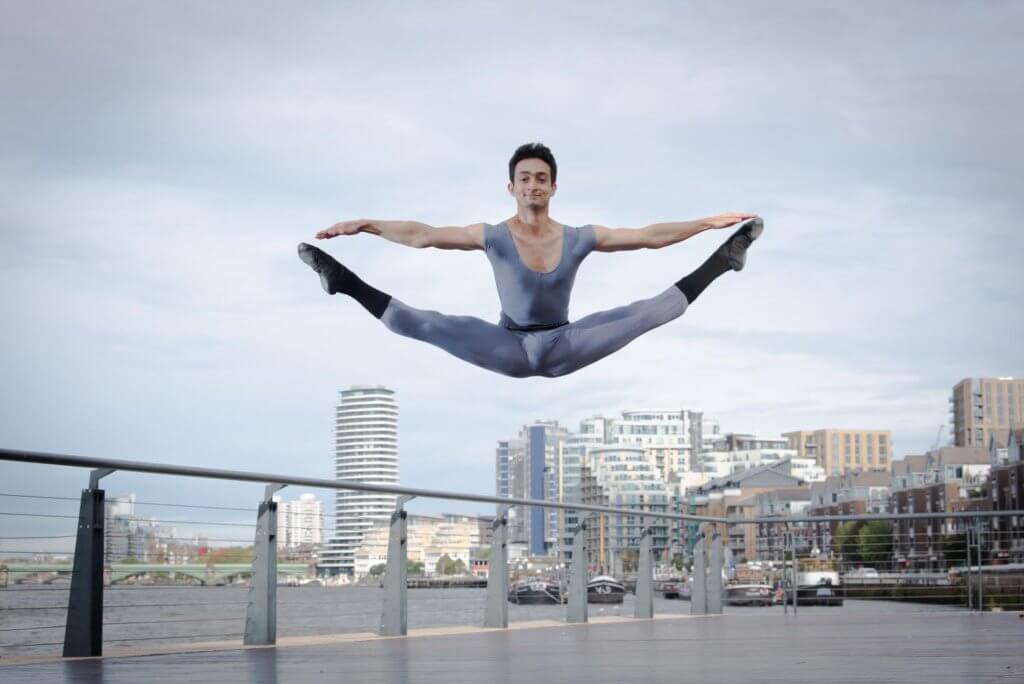
As recent as 2016, Singh was not even aware of what ballet even was. Source: Arnaud Stephenson
The experience of living internationally helps when getting jobs, showing you have experience dealing with people from different cultures and a high level of adaptability. Oftentimes, those studying abroad will experience education in a completely new way which can be daunting, but also helps to open your mind.
Tell us about your most memorable class thus far.
That was my first ballet class with my teacher back in India — Fernando Aguilera — because I was lucky to be under his training. He is renowned in the world and made what I am today. Your first teacher is your most important because it’s the roots of what you can be in the future.
Do you get to apply the theories learnt at school to the real world?
Dance communicates ideas through movement. We learn to use our bodies in a safe and healthy way all while developing a wide range of movement. Communication is also a fundamental part of the training process, both linguistic and through our bodies. These are all skills I can use in the real world.
What’s one thing from home you miss and how do you substitute it?
I miss my family, but with great technology in this day and age, I get to chat with them almost every day. Although this helps, there is nothing that can substitute being away from my family.
Do you have a favourite performance of yours you can share with us?
My favourite performance is the Giselle ballet show where I was Prince Albrecht, and a show called Legend of Love where I played the court painter Ferkhad. These are two stories of love, passion and drama.
Who’s an influential person in the ballet world you look up to?
That would be Ivan Vasilev, a Russian superstar in the world of ballet today. His looks and technique never fit into Bolshoi Theatre’s traditional standards, but he’s powerfully built and talented.
What skills have you gained thus far?
Enhancing my experience with the demands of a professional life in dance and building on my professional level of training. I’ve had intense training in classical and contemporary techniques to refine my ballet skills and enhance my versatility to get ready for a professional career in dance. We are also prepared for special big ballet company auditions where their directors come to watch and you have the possibility to be selected.
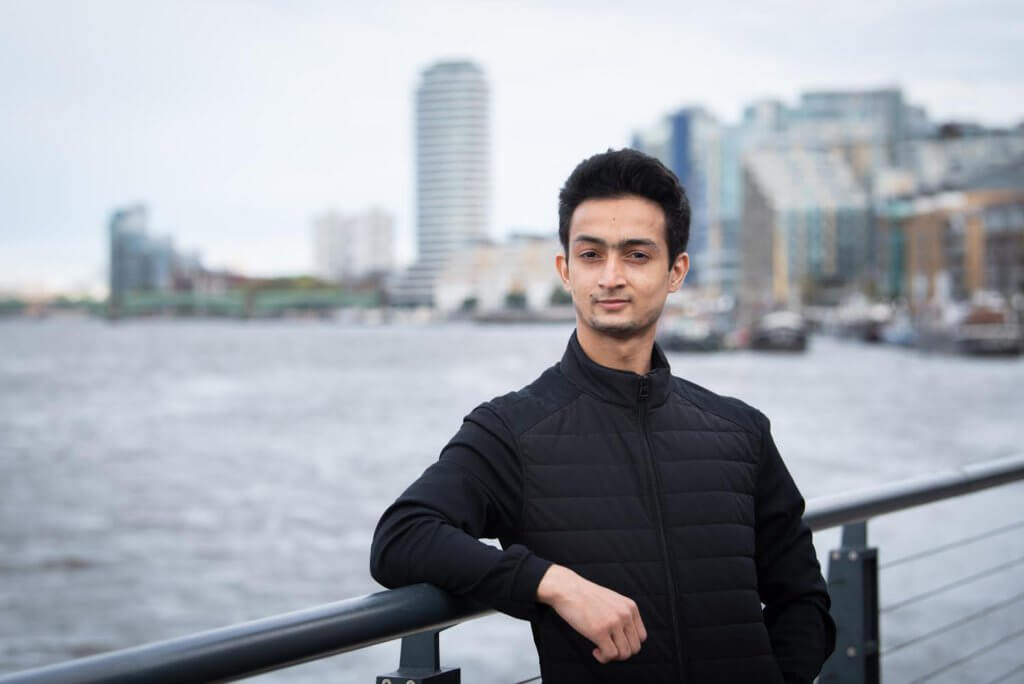
A disadvantaged background should never be an obstacle for talents, especially of Singh’s calibres, to flourish. Source: Arnaud Stephenson
What plans do you have for after graduation?
The course I am currently doing at the English National Ballet School — the professional trainee programme — is the most difficult because after all of this you are expected to be selected to work in an important ballet company as a professional dancer. My dream is to become a principal dancer one day.
Do you have any advice for international students looking to study abroad?
Beyond giving you a taste of life on your own, international programmes can broaden your perspective on the opportunities that await you when you’re ready to begin your career. I’ve learnt that there are many companies outside that may appreciate what you do well. I hope this experience opens doors for me in the future, but it’s already given me a glimpse of what my career and goals might be.
Keep up with Kamal Singh on Instagram, Twitter and Youtube. If you’d like to contribute to his crowdfunding campaign, click here.








